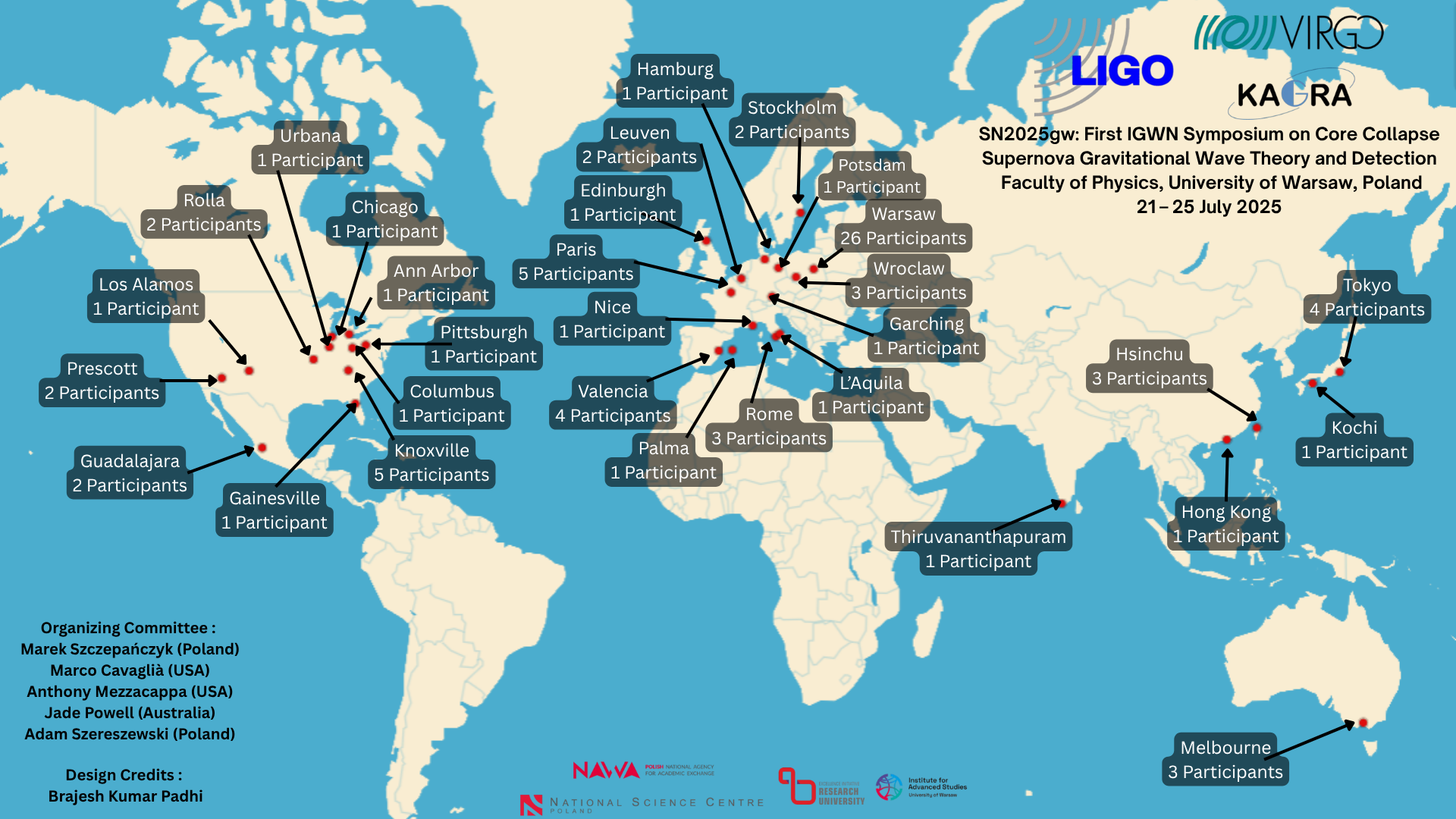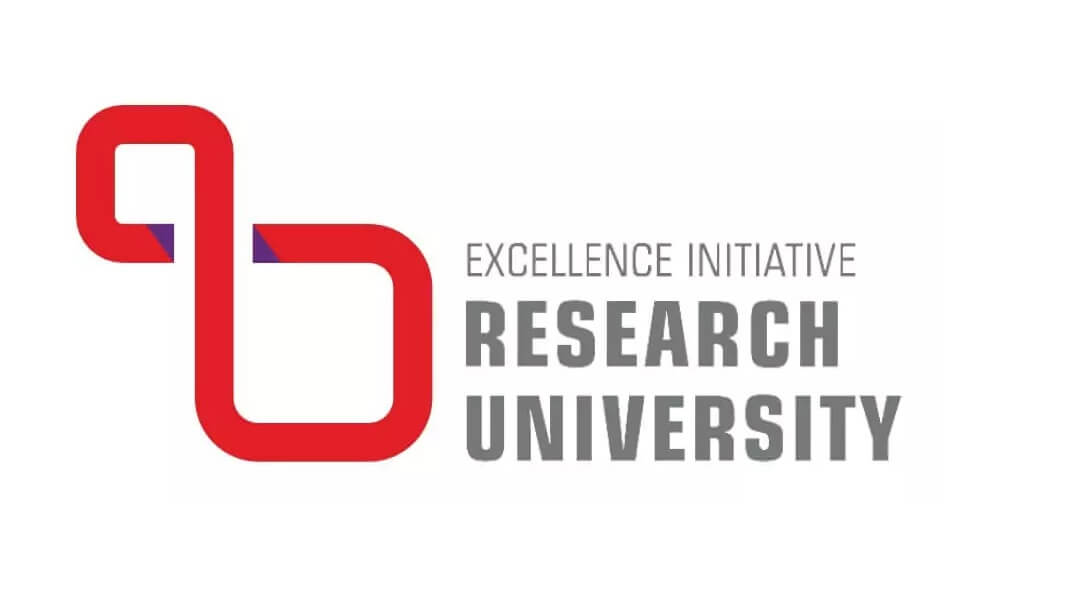SN2025gw: University of Warsaw hosts the first international IGWN symposium on supernovae gravitational waves

30 09 2025
From 21 to 25 July 2025, the Faculty of Physics at the University of Warsaw hosted the international symposium SN2025gw: First IGWN Symposium on Core Collapse Supernova Gravitational Wave Theory and Detection. The event brought together over 80 participants from four continents, representing diverse fields of contemporary astrophysics. The symposium was officially opened by Prof. Zygmunt Lalak, Vice-Rector for Research, and Prof. Krzysztof Turzyński, Vice-Dean of the Faculty of Physics.
The symposium’s name refers both to the conventional nomenclature of newly discovered supernovae (SN) and to the abbreviation for gravitational waves (gw). The organizer, the International Gravitational-Wave Network (IGWN), is a new structure replacing the former LIGO–Virgo–KAGRA collaboration. Following recommendations from the U.S. National Science Foundation, LIGO is broadening its cooperation with theorists, and the community modelling core-collapse supernovae is the first to be invited.
Among the three candidate hosts (Australia, Spain, and Poland), Warsaw was chosen through a vote of both communities—gravitational-wave astronomers and supernova theorists. The symposium’s lead organizer is Dr. Marek Szczepańczyk, a laureate of the Polish Returns 2023 program of NAWA (The Polish National Agency for Academic Exchange), a national scheme designed to encourage outstanding Polish scientists working abroad to return and establish their research groups in Poland. Hosting this event is both a great honour and a sign of international trust in Polish science.
Supernovae and gravitational waves – the next frontier in science
The symposium was unique in bringing together two research communities that had largely worked independently—gravitational-wave astronomers and theorists modelling supernova sources. The goal was to establish a common language and outline paths of collaboration that may, in the future, lead to a breakthrough discovery: the observation of a core-collapse supernova.
Five days of intensive knowledge exchange
The program of the symposium consisted of five thematic blocks: core-collapse supernova theory, gravitational-wave detection and parameter estimation, neutrino detection, electromagnetic observations, and prospects for the next decade of research.
The roster of lecturers and invited speakers included leading figures in the field from the USA, Europe, Japan, and Australia, among them John Beacom (Ohio State University), Christopher Fryer (Los Alamos National Laboratory), Thomas Janka (Max Planck Institute for Astrophysics), and Tobias Fischer (Wrocław University of Science and Technology).
Key outcomes and significance
One of the key outcomes of the symposium will be a white paper summarizing the current state of knowledge and providing recommendations for research funding agencies. In addition, the prestigious journal Classical and Quantum Gravity will publish the symposium proceedings.
As emphasized by the organizers, the event is not only of major scientific importance but may also serve as a model for coordination between gravitational-wave astronomers and other theoretical communities.
The event was co-financed by the Institute for Advanced Studies at the University of Warsaw.
More information is available on the symposium website.

